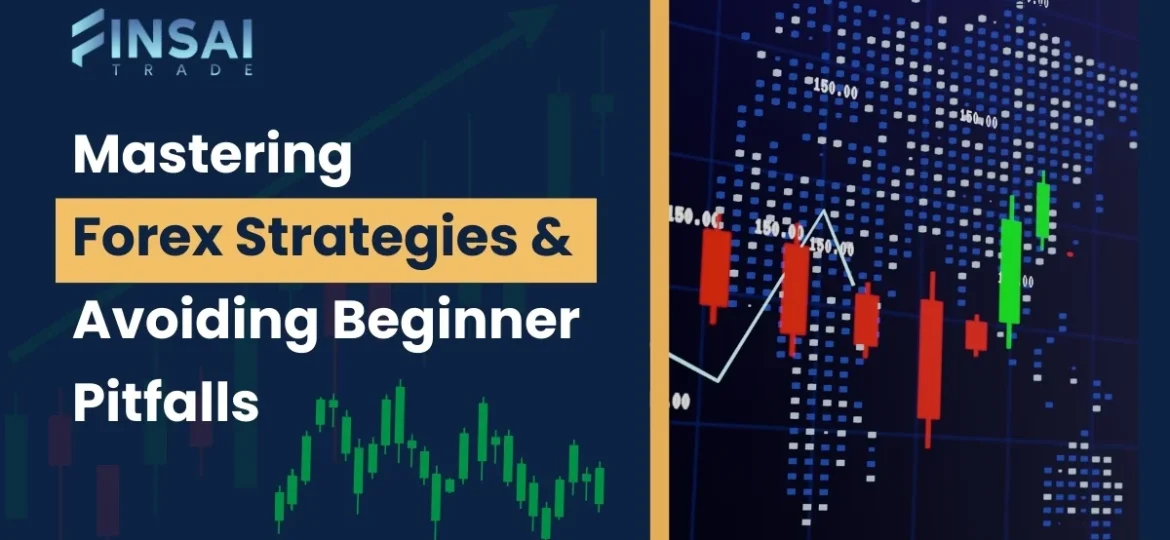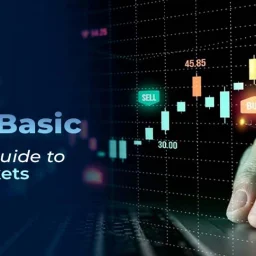
In this ever-competitive world, who doesn’t wish to grow wealth? Everyone does, right? This is why forex trading is becoming increasingly popular all across the globe, and there’s no doubt that this is the future, too. It works on a 24/7 hours and 5 days a week open market mechanism, offering plenty of opportunities for traders or investors. Now, success in forex trading totally depends on the right strategies and avoiding common pitfalls initially. Keeping this in view, here, you’ll learn how to master forex strategies and avoid beginner pitfalls, including the best forex trading platform for beginners. Make sure that you read it till the end.
Ways To Master Forex Strategies And Avoid Beginner Pitfalls
Below are the ways to master forex strategies and tips to avoid beginner pitfalls.
1: Understand About Forex Trading Basics
Before starting, it’s always good to learn the basics first. Understanding the forex trading basics sets the stage for success. This step ultimately involves learning how the market works. Forex or foreign exchange involves exchanging one currency for another at an agreed rate. Currency pairs such as EUR/USD, GBP/USD, and USD/JPY are common instruments that are traded in the market. Also, as a beginner, you must understand the key concepts mentioned below:- Pips and Lots Firstly, learn about Pips and Lots. A “pip” is the smallest unit of price movement, while a “lot” refers to the size of the trade.
- Bid and Ask Price The next is Bid and Ask price. The bid price is what buyers are willing to pay, and the ask price is the amount sellers are asking.
- Leverage and Margin Lastly, Leverage and Margin. These two concepts are crucial for beginners, as they determine the amount of money you can control with your initial capital.
2: Developing A Trading Strategy
After learning about the basics, the next step is to learn about trading strategies. Below are several strategies that you can consider as a beginner. These are:- Scalping The first strategy is scalping. It basically involves making quicker trades all day, aiming to capture small price movements.
- Day Trading The next strategy is Day Trading. It is very much popular, and aims to capitalize on short-term price fluctuations by buying and selling currency pairs within the same day.
- Swing Trading Another popular strategy is Swing Trading, and this targets holding positions for several days or even weeks to capitalize on price swings.
- Position Trading The last is a long-term strategy, named Position Trading. Here, the traders hold positions for extended periods, usually based on major trends or macroeconomic factors.
3: Risk Management
As a beginner, the most common pitfall is not to take account of the appropriate risk management abilities. So, it’s important to address this. Effective risk management strategies include:- Stop-Loss Orders These orders are used to limit losses by closing a trade when a specific price level hits.
- Risk-to-Reward Ratio The next common guideline is a 1:2 risk-to-reward ratio. This simply means for every dollar you risk, you aim to make two dollars in return.
- Position Sizing In Position Sizing, the size of your trades should be proportional to your overall account size. Trading with no more than 1-2% of your capital per trade is generally recommended for beginners.

Common Pitfalls To Avoid In Forex Trading
Here are the common pitfalls to avoid in forex trading.- Lack of Patience: The first one is lack of patience. Yes, many beginners rush into trading without doing proper research, which can lead to impulsive decisions and losses. Remember that forex trading is not a “get-rich-quick” endeavor, it demands patience.
- Over-Leveraging: The next pitfall is over-leveraging. It can be both beneficial and risky. Beginners often use too much leverage, which can lead to significant losses. It’s better to focus on lower leverage and practice prudent position sizing.
- Chasing Losses:After a loss, many new traders try to quickly recover by increasing the size of their trades. This is known as “revenge trading” and is a dangerous habit that can deplete your trading account.
- Failure to Adapt:The forex market is dynamic, and a strategy that works one day may not work the next. Successful traders are always ready to adjust and learn from their experiences.





